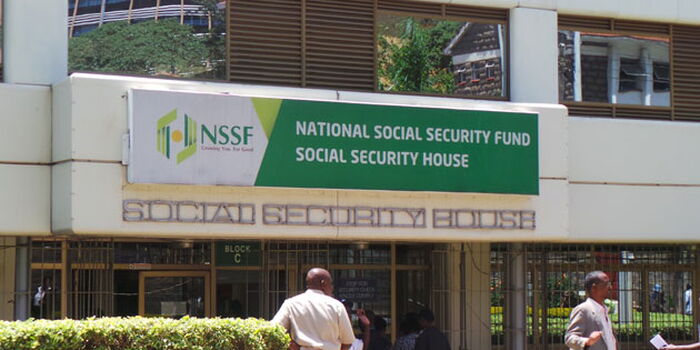KPMG, a United Kingdom-based audit company, has warned that the government’s recent decision to hike the National Social Security Fund (NSSF) contributions will have a ripple effect on salaried Kenyans.
The audit firm revealed on Friday, February 7, that besides the reduction in an employee’s net monthly pay, the statutory deduction will also lower the purchasing power of most employed Kenyans.
The NSSF Act of 2013 mandates that all individuals subject to the Employment Act who are 18 years of age or older and have not yet reached retirement age contribute 6 per cent of their pensionable earnings to the Fund.
As per the Act, which is currently being implemented in phases, employed Kenyans are set to receive less pay at the end of this month after the government increased the monthly NSSF contributions from Ksh2,160 to Ksh4,320.
President William Ruto signs the Supplementary Appropriations Bill into Law at State House in Nairobi.
Photo
John Michuki
The Act establishes two levels of contributions, tier one and tier two. Tier one contributions are for pensionable earnings up to the lower earnings limit, while Tier two contributions apply to earnings above that limit.
The lower earnings limit, or the amount that is considered the lowest pensionable salary, has been raised to Ksh8,000 up from the current Ksh7,000, while the upper earnings limit has been raised to Ksh72,000 with this category of employees set to contribute more money.
Following the implementation of the new regulation, employers are required to remit the deductions on the 9th day of each subsequent month.
Despite becoming law in 2013, the Act was implemented in 2024 after a decade-long court battle following a petition by the Kenya Tea Growers Association (KTGA) challenging some aspects of the Act.
On February 21, 2024, the Supreme Court affirmed the previous decision by the Court of Appeal that lifted the Employment and Labour Relations Court’s decision to declare the NSSF Act unconstitutional.
Meanwhile, according to KPMG, the decision to increase the NSSF decisions will also negatively impact employers who are likely to face higher staffing costs and increased compliance with obligations.
“From an employer’s perspective, this change will lead to higher staffing costs and increased compliance obligation, particularly considering other statutory deductions, such as the Social Health Insurance Fund, the Affordable Housing Levy, and the revised upper PAYE bands,” read part of the report.
However, on the flip side, KPMG noted that the expected increase in NSSF contributions will result in a rise in the national savings rate and individual pension savings.
NSSF CEO David Korros addressing a gathering during the launch of of NSSF’s Corporate Strategic Plan 2023-2027 on Tuesday, May 7.
Photo
NSSF


